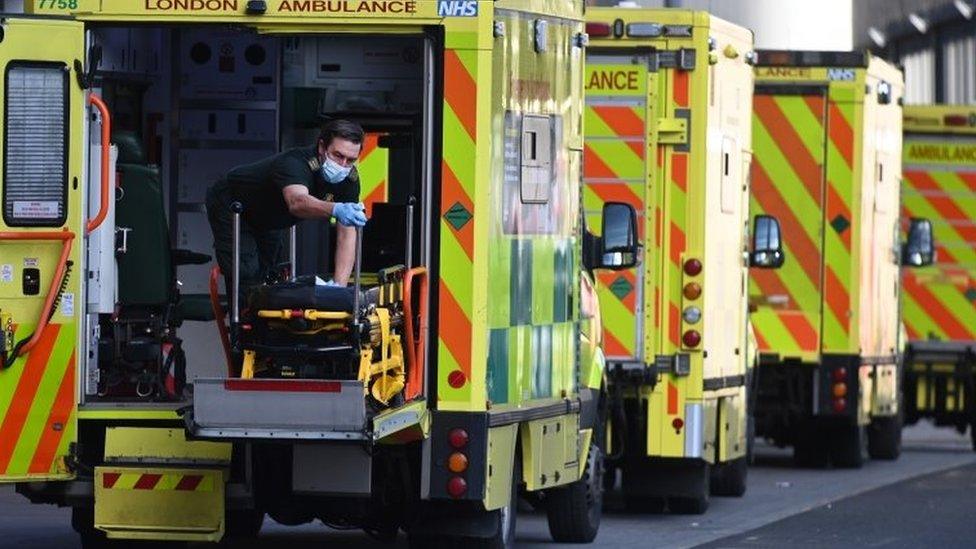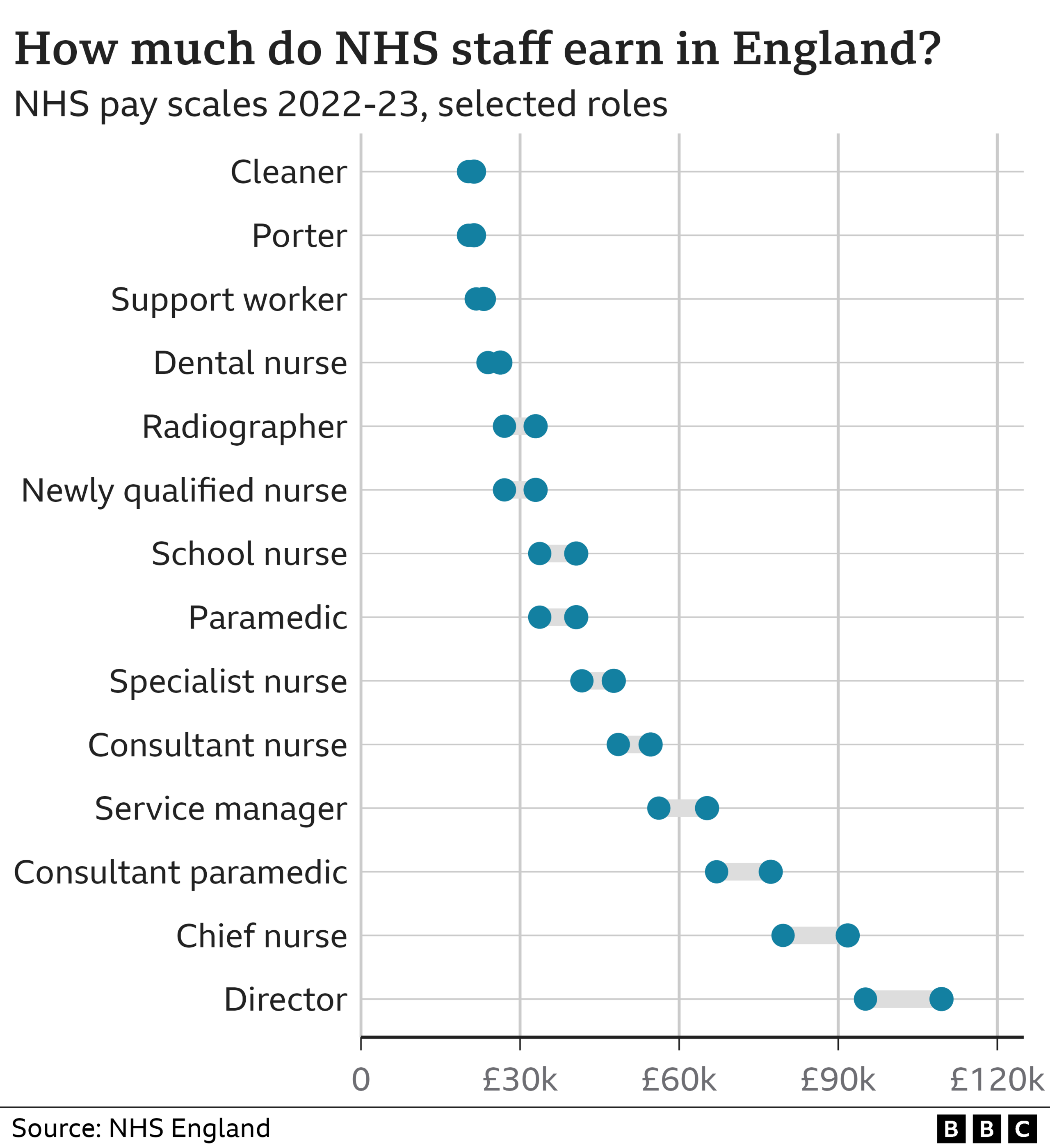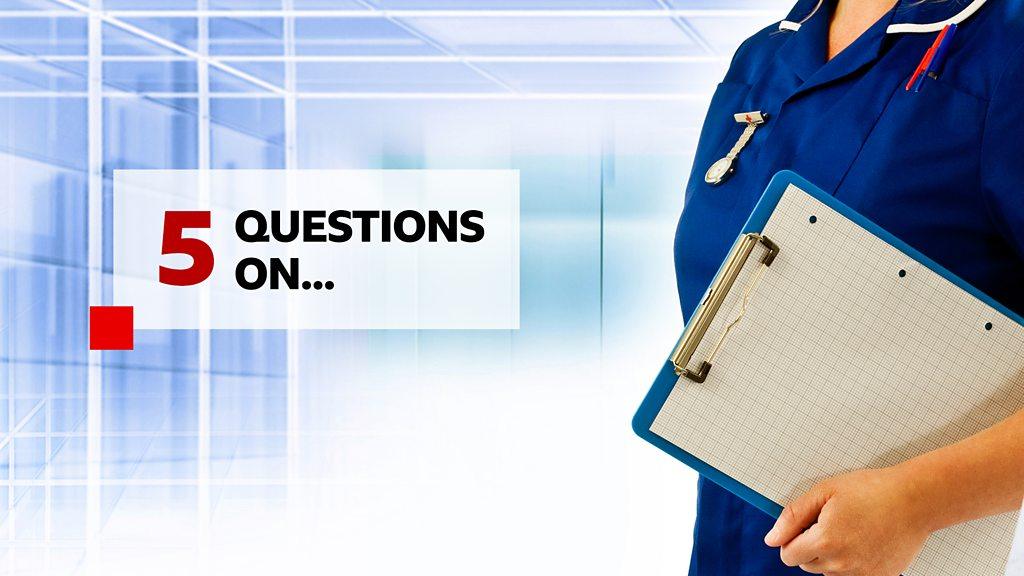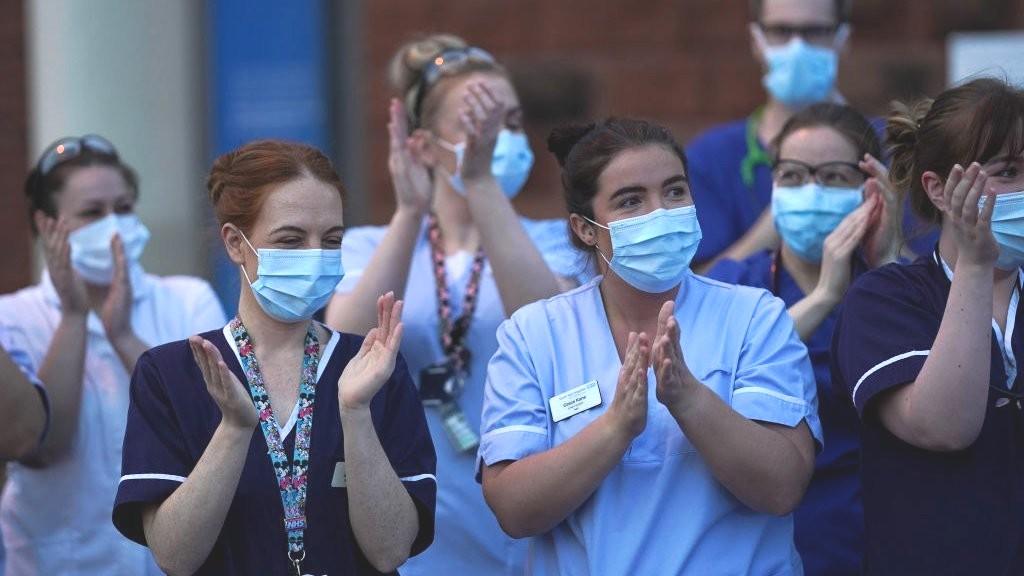Ambulance staff to strike on 21 December
- Published
- comments

Ambulance staff across most of England and Wales will go on strike on 21 December in a dispute over pay.
The coordinated walkout by the three main ambulance unions - Unison, GMB and Unite - will affect non-life threatening calls only.
But it could mean people who have had trips and falls not being responded to.
Members of GMB, which represents nearly a third of the 50,000-strong workforce, will then follow that up with another walkout on 28 December.
It comes as Royal College of Nursing members are also preparing to go on strike on 15 and 20 December in parts of England, Wales and Northern Ireland.
The impact of the first ambulance walkout will be patchy as Unison, which is the largest union in the sector, only has a strike mandate for half of England's 10 regional services for the 21 December walkout.
The walkouts will involve paramedics as well as control room staff and support workers, with the military on standby to help out.
The start times and lengths of the walkouts vary between unions and services, but all will last between 12 hours and 24 hours.
The only service which will be completely unaffected, however, is the East of England.
Government to blame for dispute - union
The full extent of the cover striking staff will provide has yet to be decided - detailed negotiations will take place between local ambulance bosses and unions ahead of the walkout.
Under trade union rules, life-preserving care has to be provided so the two highest category calls - covering everything from heart attacks and strokes to major trauma - will still be responded to.
But Matthew Taylor, of the NHS Confederation, which represents health managers, said he was worried the action would "undoubtedly" affect patient care and how quickly ambulance services could respond and may even deter people from seeking help.
"The prospect of industrial action over Christmas is very concerning," he added.

Last month the Association of Ambulance Chief Executives warned patients were dying because of the "crippling delays" that ambulance crews faced when arriving at A&E.
Unison head of health Sara Gorton said: "The government will only have itself to blame if there are strikes in the NHS before Christmas.
"Ambulance staff and their health colleagues don't want to inconvenience anyone. But ministers are refusing to do the one thing that could prevent disruption - that's start genuine talks about pay.
"Wages are too low to stop health workers quitting the NHS. As more and more hand in their notice, there are fewer staff left to care for patients. The public knows that's the reason behind lengthy waits."
All the unions have asked for above-inflation pay rises.
But the governments in England and Wales have given NHS staff an average rise of 4.75%, with staff guaranteed a minimum of £1,400.
England Health Secretary Steve Barclay said paying what was being asked for was "unaffordable" and he has pointed out the award met the requirements of the recommendations of the independent NHS Pay Review Body.
Just over two thirds of ambulance staff are thought to be members of one of the three unions.
The last time ambulance staff were involved in strike action was in 2014.


Are you an ambulance worker, or a patient affected by the strike? Please email us and let us know how you feel about the industrial action: haveyoursay@bbc.co.uk, external.
Please include a contact number if you are willing to speak to a BBC journalist. You can also get in touch in the following ways:
WhatsApp: +44 7756 165803, external
Tweet: @BBC_HaveYourSay, external
Or fill out the form below
Please read our terms & conditions and privacy policy
If you are reading this page and can't see the form you will need to visit the mobile version of the BBC website to submit your question or comment or you can email us at HaveYourSay@bbc.co.uk, external. Please include your name, age and location with any submission.

Related topics
- Published25 November 2022

- Published29 November 2022

- Published21 June 2022
- Published7 January 2021
